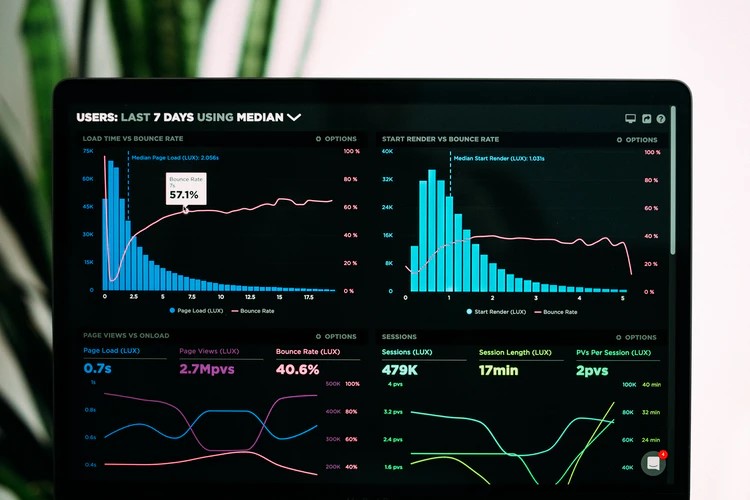The world has become a global marketplace, and businesses are increasingly going digital.
This means many business activities now occur online, from data management to customer service to marketing and a wide range of cybersecurity activities vital to business survival.
This leaves many businesses at risk of security threats as hackers and cyber terrorists constantly pry into businesses’ cyber activities to manipulate data and shut down essential functions.
As an online business owner, you must take preventive measures to safeguard your business from impending cyber attacks that may impede the growth of your business.
With this in mind, we compiled the ten cybersecurity factors to consider and some risks to avoid as a digital entrepreneur.
The importance of adopting security considerations for online businesses

Every year, businesses shut down due to data breaches and several forms of cyberattacks.
According to research, at least 64% of businesses have experienced cyberattacks, and 60% of small businesses that are victims of cyberattacks go out of business in six months.
Businesses that don’t take proper security considerations are prone to cyber attacks on social media, websites, emails, and other platforms they engage on.
Without adequate security considerations, you may lose vital information about your company to your competitors, cyber terrorists, and breach your customers’ private information.
Data breaches may not only attract penalties from regulatory bodies. They may also destroy your business reputation and lead to irrecoverable business losses. This is why it is essential to take adequate security measures on every platform your business engages on.
Security considerations will ensure your business is fully guarded to resist any forms of cyber threats so you can secure all your business information and activities on the web.
Top 10 security considerations for every digital entrepreneur

As a digital entrepreneur, taking adequate preventive measures to enhance your cyber security will help you to prevent avoidable consequences regarding your business data protection.
Below are the top ten considerations you should know as a digital entrepreneur.
1. Email marketing risks

Email is more vulnerable to cyber attacks than any other platform because it is a widely-used communication platform for businesses and individuals.
As a digital marketer, chances are you receive tons of emails daily from your customers and other businesses willing to do business with you.
However, you must take adequate security measures to prevent data breaches as many cyber terrorists hack businesses ‘ data through phishing.
Phishing is a manipulative attempt cyber terrorists make to obtain sensitive information from individuals and organizations.
Cyber terrorists phish sensitive information by posing themselves as trusted individuals and organizations with irresistible offers and urging recipients to click a link or submit sensitive business information such as passwords, credit card numbers to get access to compelling offers.
Therefore, it is essential to take adequate email security measures to ensure you don’t put your business at the risk of cyber email attacks.
Common ways to detect phishing emails are to check if the sender addresses you by your business name, sends unsolicited attachments, or sends suspicious URLs leading to illegitimate websites.
Other preventive measures to take to prevent email cyber-attacks are installing email security software and employing encryption to enhance your email security.
2. Customer data attacks

As a digital entrepreneur, your business is at higher risk of cyber attacks because you have vital information about your customer’s that hackers are looking for.
This is why it is important for you to safeguard your customers’ data to prevent hackers from taking advantage of your consumers’ vital information.
General Data Protection Regulation (GDPR) policy is one of the most effective data protection directives established to track how organizations and businesses handle customer information.
GDPR compliance guide requires organizations to prove they can safeguard customer data to avoid the penalties that come with customer data breaches.
To not incur GDPR penalties and lose your customer’s trust, you must take adequate measures to ensure your customer’s data is well safeguarded.
To do this, provide adequate data security through antivirus firewalls and encryption, update backups, strengthen passwords through two-factor authentication and adequately equip your employees with online security knowledge.
3. Social media hacking

Social media is an invaluable resource for cyber terrorists as it gives them easier access to track and disrupt business activities.
Social media platforms also come with several tracking metrics that provide cyber attackers the information they need to intrude on a business’s privacy.
Hackers hack businesses’ social media platforms to change a business profile, have direct, illegitimate access to their followers, or post negative information to destroy a brand’s reputation.
This is why it is essential to ensure all your social media platforms are well secured to resist any form of cyber attack.
The best way to enhance your social media is to ensure you have a strong password and use practical social media monitoring tools.
A strong password will prevent hackers from acquiring easy access to your social media accounts, and social media monitoring tools will keep you updated about the activities taking place on your social media accounts.
4. Social media bots

Generally, Bots are software applications used to perform automated tasks online. For social media, they can be effective at posting at scheduled times or following specific people.
However, social media Bots have advanced from performing these simple, harmless tasks to creating fake social media followers and generating fake likes and followers.
However, they are bad for your business because they create fake engagements and don’t bring real, actual results.
To prevent social media Bot intrusion, review your social media profiles regularly, adopt two-factor authentication and change your password within two to three months.
5. Cookie logging
Cookie logging is scripts used to obtain people’s cookies illegally. The cookies are then saved in a log file to access victims’ information.
Cookies are practically used on almost every website. Although it works to ensure a smooth experience for website visitors, hackers can use it to obtain sensitive information about your browsing activities illegally.
To prevent this, ensure you log out of websites immediately you use them and also encrypt your data using SSL and TLS data encryption.
6. Cookie jagging
Cookie jagging is similar to cookie logging as they are both done through the use of cookies.
However, cookie jagging works by hijacking a browsing experience by a third party. With cookie jagging, the hacker completely takes over your browsing activities based on the information provided through cookies.
An effective way to prevent cookie jagging is to ensure your data is well encrypted through secure data encryption.
7. WordPress attacks

WordPress is the most common website hosting platform across the globe.
Many digital entrepreneurs use WordPress to create their websites and blogs, thereby making it one of the familiar places cyber attackers keep their eyes on.
To protect your WordPress websites or blogs from cyber threats, ensure to keep your website up-to-date. Constantly update themes, plug-ins, and other major components on your WordPress to ensure there are no cybersecurity loopholes.
Also, ensure to make use of strong passwords and two-factor authentication for your WordPress websites.
8. Domain attacks

WordPress websites are not the only websites prone to malicious cyber-attacks; practically all websites are at risk of cyberattacks.
Domain cyber attacks can come in different forms. This includes cross-site shipping, a situation whereby hackers implement codes on your website to access your visitor’s information illegitimately.
Website attacks could also be in the form of DDoS attacks, a situation whereby hackers bombard your website with excess traffic to shut down your website.
Website attacks could also be in the form of SQL injection attacks where hackers get access to your business data through forms and search boxes.
To prevent domain attacks, ensure you have strong passwords for your website and employ the use of firewalls.
9. Malware

Malware is dangerous software designed to damage your computer and acquire illegitimate access to your companies’ information.
The different malware types include viruses, Trojan, worms, spyware, Adware, and others.
Malware can access your system when you download software applications from a source with malware, visit a website with malware, open an email attachment with malware, and click a fake pop-up.
Malware is obtained in different ways, so it’s essential to enhance your cybersecurity effectively.
To do this, update your computer software, ensure you click URLs from reputable sources only, use antivirus software and limit the way you share and receive files.
10. Online financial attacks

Your e-commerce websites can be great targets for cyber terrorists to disrupt your financial transactions online.
If you use third-party customer payments platforms like Payoneer and PayPal, you should ensure adequate security measures such as two-factor authentication processes and SSL Protocols.
Conclusion
The digital age is bristling with fraud and crime everywhere on the internet; adequate preparation is necessary to avoid and reduce the chances of your business falling victim.
Implementing good cybersecurity practices and measures for your business can protect it against cyber-attacks and malicious activities. To do this effectively, we’ve discussed the top ten security considerations to make and digital risks to avoid as an online entrepreneur.
Employ the preventive measures discussed to enhance maximum cybersecurity and stay safe.


